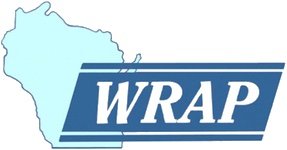COVID-19 Testing Support for Facilities Step-Down
ICYMI: REMINDER: COVID-19 Testing Support for Long Term Care Facilities Step-Down
Attn: Long Term Care and Residential Care Facilities
REMINDER: COVID-19 Testing Support for Long Term Care Facilities Step-Down
The Wisconsin Department of Health Services (DHS) is announcing the step-down of the COVID-19 Testing Support for Long-Term Care Facilities. Thank you for your partnership in providing vital testing services to residents and staff throughout Wisconsin.
Here is an overview of what this means for facilities:
- The final date for ordering PCR and antigen test supplies, including self-tests and point-of-care tests, is June 15, 2023.
- The final date for PCR lab diagnostics services will be June 15, 2023.
- The final date for courier services to transport specimens to the lab will be June 15, 2023.
We encourage testing through the deadlines listed above. If ordering antigen tests, plan ahead to ensure that you have enough supplies to conduct repeat testing as recommended by the Food and Drug Administration..
If your facility experiences a COVID-19 outbreak, please contact your Local Public Health Department.
ICYMI: Biden Administration Announces Executive Actions Impacting LTC Providers

Today, U.S. President Joe Biden and the Administration announced what they described as “the most sweeping set of Executive Actions to improve care in history.” The White House fact sheet on these Executive Actions specifically notes the Administration’s focus in the fiscal year 2024 budget around support for quality and affordable long term care (LTC), along with childcare and pre-school. While Congress is considering these options, the President noted he wanted to take “immediate action to make care more affordable for American families, support family caregivers, boost compensation and improve job quality for care workers, and expand care options.”
- The President’s Executive Order (EO) directs the U.S. Department of Health and Human Services (HHS) to consider issuing regulations and guidance documents to build on the planned SNF minimum staffing proposal expected to be released this Spring and condition a portion of Medicare payments on worker retention.
Other provisions of the EO specifically impacting our LTC providers are listed below. The EO:
- Encourages providers to establish incentives to recruit and retain workers, help prevent burnout, make it as easy as possible for care workers to access behavioral health services, and thereby improve the care that individuals receive.
- Directs the Department of Labor to publish a sample employment agreement so long-term care workers and their employers can ensure both parties better understand their rights and responsibilities around unionizing, compensation and support.
- Encourages the Chair of the Equal Employment Opportunity Commission to work with the Attorney General, the Secretary of Labor, and the Secretary of Homeland Security to develop materials addressing the employment rights of non-citizen domestic LTC workers who are legally eligible to work.
- To make the delivery and design of federal care assistance and programs work better for families, the care workforce, and people seeking care, the Treasury and the Departments of Defense, Agriculture, Labor, HHS, Education, and Veterans Affairs will engage with parents, guardians, and other relatives with care responsibilities; individuals receiving LTC; State and local care experts; care providers and workers; employers; and labor unions. The Executive Order also encourages the Administrator of the Small Business Administration to consider conducting a similar engagement.
- Promotes the use of apprenticeship programs and partnering with employers, unions, and others to recruit, train, and keep LTC workers on the job while also helping them advance their careers as registered and licensed nurses.
- Directs federal agencies to identify which of their grant programs can support LTC for individuals working on federal projects and consider requiring applicants seeking federal job-creating funds to expand access to care for their workers.
- Directs HHS to increase beneficiary communications regarding beneficiary access to Medicare information via 1-800-MEDICARE and the State health insurance assistance program networks.
AHCA/NCAL will keep members apprised of any further developments and information around this EO as details

